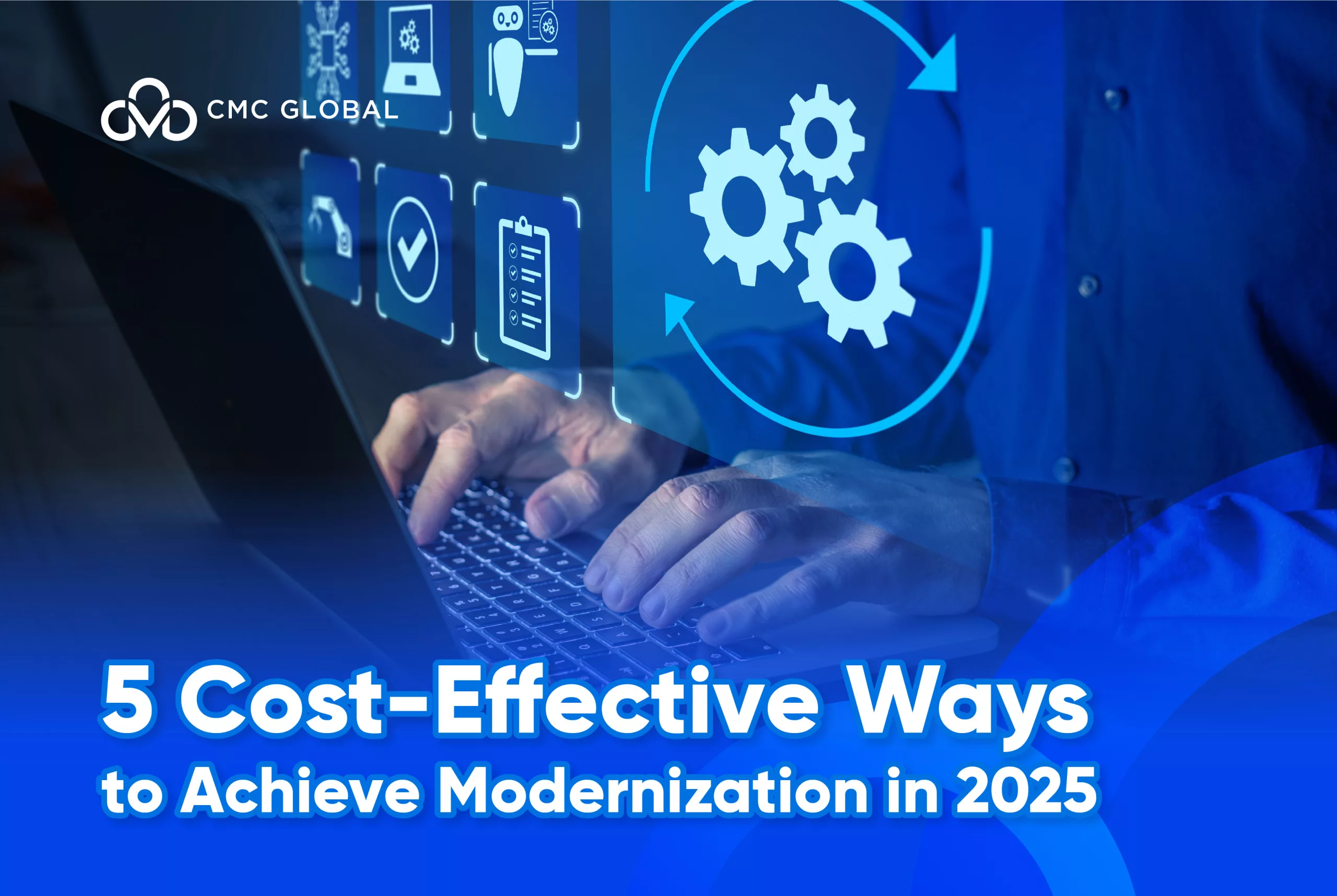While you may want to manage your cloud system yourself, it is important to understand that such an activity can get complicated. You can learn to change your car’s fluid, clean the filters, or fix the air conditioners when they’re broken, but it’ll take you a lot of time and effort to pick up these skills and handle these tasks. On the other hand, by offloading this side work to a specialist, you can save on resources and spend them on what you can best. This is the idea behind managed cloud services.
If your business runs on lots of data and information and you don’t have a carefully managed cloud, your business is prone to threats, loss of data, and downtime, all of which can be expensive. This is where managed cloud services come in and fill in this gap of management. In this article, we will share with you 15 benefits of managed cloud services as well as how you can determine where you should hire a managed cloud service provider. Let’s dive in!
What are Managed Cloud Services?
Managed cloud services are the practice of outsourcing partial or complete management of an organization’s cloud resources or infrastructure to a third-party service provider. It allows the organization to tap into the power of cloud computing without the difficulty of becoming an expert in every aspect of the field. When you migrate to the cloud, your cloud system won’t be just up and running on its own, but it has to be managed and managed to remain stable and efficient. There are two options for you to choose from:
- You can hire and train in-house specialists to carry out the complex tasks required to manage your cloud infrastructure, its application stacks, and tools.
- The other option is to employ a trustworthy service provider. This option will free you from the cost of recruiting, training, and maintaining an in-house team and allow you to focus on your core business.
With the managed cloud services, you can choose which part of your cloud system you would like to manage in your premises and which you would like to offload to your vendor. Managed cloud services cover both application and infrastructure-level support. They manage not just the computing storage, network, and operating systems but also the application stacks and the complex tools that are part of the infrastructure.
15 Benefits of Managed Cloud Services
No High Infrastructure Costs
Once you employ cloud-managed services, your organization can leverage your vendor’s network infrastructure without having to invest in expensive assets. Managed cloud service providers are responsible for setting up and maintaining their network while also taking full ownership of staff recruiting and training.
Predictable Pricing
The next benefit of managed cloud services is they change by subscription, which means you’ll have the option to choose the tier that’s best suited to your needs. On top of that, you have the freedom to scale up capacity depending on your usage. For instance, you can adjust your capacity based on your seasonal traffic. This will help you optimize your spending and deploy saved resources to other critical areas of your business.
Cybersecurity Support
Billions of dollars are lost due to system loopholes and ransomware every year. Cybercrimes can cause a lot of damage if your organization happens to be a victim. The good thing is you can insure your critical data against cyber attacks by employing managed cloud services. They have the skills, tools, and solutions to make sure that your system and data are well protected.
Transparent costs
One great thing about cloud-managed service providers is that they are highly flexible. Most managed service providers offer fixed payment plans or pay-per-service options, so you can expect how much you’ll need to spend.
Robust Infrastructure
Managed cloud service providers deliver a robust network infrastructure with around-the-clock management. They scan and monitor your system to meet the security requirements, as well as make sure that there are no potential security risks. Additionally, experienced service providers often integrate their existing business policies and practices to help you achieve your business goals more efficiently.
Future-proofed Technology
If you hire in-house IT staff, you’ll need to spend resources on training your IT on new upgrades or new technologies when they are released. If you outsource to cloud-managed services, on the other hand, your vendor can always provide you with the latest technologies since it’s their constant job to keep up with trends.
Disaster Recovery Support
On-premise servers are expensive and require complex recovery plans and solutions in case a disaster occurs. With managed cloud services, you can rest assured that your data is safe across all services and applications. If any disaster occurs, your organization can continue running with little downtime because when a hosting server failure occurs, another server will come in immediately. Your cloud-managed service provider will watch out for failures and balance loads accordingly.
Compliance Support
If you are an online retailer, financial institution, healthcare provider, or any type of organization subject to industry regulation, you need to ensure that you’re in compliance with the security and privacy regulations to prevent trouble. Cloud-managed service providers can handle this for you. Businesses have sensitive data, so it is best to comply with all privacy and security laws so you won’t put your business, employees, and customers at risk. If you employ cloud-managed services, you won’t have to worry about violating the laws.
Reliability
Managed cloud services can guarantee reliability for your system. They monitor your network 24/7 to ensure that the operations run properly. Most providers today guarantee 99% standard uptime. This means they can provide 24/7 service. Remember that around-the-clock service is important in solving issues quickly and making sure that you can deliver consistent service to your end consumers.
Free IT Staff and In-House Developers
You know how expensive it is to run a full-time IT department. If you want to reduce the cost of hiring and maintaining staff for the job, you can outsource to managed cloud services. After all, a cloud environment requires around-the-clock operations, and it’s very hard for an in-house team to meet this requirement, or they are not able to solve certain problems, such as system outages or troubleshooting slow connections.
Resource Optimization
Managed cloud services give you peace of mind because you can be sure that your business is fully using every cloud resource’s ability you’re paying for. It’s the job of service providers to make sure none of your capacity is staying idle.
Rapid Response Time
As mentioned earlier, managed cloud service vendors guarantee round-the-clock support. So, you can expect their cloud specialists and relevant personnel to resolve any trouble as soon as it arises. With their 24/7 IT Support, you can get a rapid resolution once an issue is detected.
Network Security
When you’re on the cloud, you have to make sure that your network is secure. If your cloud network is not, it is susceptible to cyber-attacks that will put your critical data at risk. Keep in mind that cloud security is not a straightforward operation; it is complicated and complex. So, you will need the skills and knowledge of specialists to keep your network secure from ransomware and unauthorized access at all times.
Centralized Control
Managed cloud services enable you to control your cloud infrastructure in one location. This means the network administration and support are simplified. This also means that you can easily make any necessary changes to your network.
What is a managed cloud service provider?
A Managed Service Provider (MSP) is a third-party service organization that remotely handles a specified set of IT activities on behalf of its clients. These activities can include networking, security, mobility, applications, and infrastructure.
As an alternative to on-demand services, an MSP provides management, maintenance, and support in a proactive and customizable manner. These services are charged via a subscription model, which allows you to predict your IT spending better.
A company can outsource a part of or all of its IT needs to an MSP. Many organizations outsource the most time-consuming, repetitive, non-critical operations, as well as newer technologies for which their in-house IT team is not specialized, such as cloud security.
Benefits of working with a managed cloud service provider
Deciding to rely on a cloud service provider can be a big decision, as it can have a serious impact on your company’s bottom line. It can also feel overwhelming since you may have concerns about security and downtime, or you may have a limited understanding of the impact it can have on your existing operations. You may worry about where the servers are located and what happens to all your data and applications if there is a disaster.
While these concerns are valid, let them discourage you from getting help from a managed cloud service provider. When you pick the right one, all of these issues can be discussed and resolved, and you can reap the full benefits that a great cloud service provider offers. Here are the benefits of working with a vendor for managed cloud services.
Better Use of Your IT Team
By hiring a cloud service provider, you can free the time and energy of your in-house IT team from the constant daily maintenance of data infrastructure and focus them on more mission-critical tasks and activities.
Better Understanding of Data Management
Managed Cloud service providers specialize in the management and protection of information and data on the cloud. When your company’s systems and information operate there, your service provider can help you gain insight into how your system is doing and where you should optimize. As new ways to organize and share information are figured out, managed cloud service providers can help you learn new and meaningful things about the data you operate on.
Better Security
When you work with a cloud service provider, your systems, applications, and information are well-insured against cyber attacks. Highly regulated data, encryption, and security measures are what they use to ensure your data is inaccessible to outsiders.
Although relying on a managed cloud service provider can feel overwhelming and unsafe, in fact, it is neither of these things. The service provider will offer you additional time, insight, and security that would otherwise be unavailable.
How To Determine If You Can Benefit From Managed Cloud Services
While managed cloud services can be highly beneficial, such services come at a cost. To know if your organization can benefit from managed cloud services, answer the following questions:
How large and busy is my IT staff?
The larger and less busy your in-house IT team is, the more time and resources they have to drive your digital transformation. If your IT staff, however, is small or very overloaded from managing business-critical cloud initiatives, it can help to partner with a cloud MSP who can provide you with the IT resources you need to handle some of your cloud and SaaS applications.
Do I have the internal expertise for your digital transformation? Whether you have a small or large in-house IT team, you might find that your IT team lacks expertise in on-premises-to-cloud migration, data security, or other key components of your digital transformation goal. In such cases, you need to weigh out the benefits of recruiting people with this expertise versus partnering with a cloud MSP who readily possesses it.
Will working with a cloud-managed vendor provide me with a differentiated competitive advantage?
Some companies want their internal teams to focus on more strategic digital transformation projects that differentiate their product offerings and outsource to MSPs only basic, operational SaaS applications and other cloud tasks.
Some companies see benefits in bringing in MSPs that are experts in the strategic digital transformation project they’re launching and want to use their internal team’s existing expertise for their current SaaS applications and cloud services instead.
Different companies have different answers to this question based on their goals, their internal resources, and their existing expertise.
Don’t Be Afraid To Get Help
New cloud technologies have removed a great deal of complexity from IT and opened up new opportunities for digital transformation. However, new complicated IT challenges (data sprawl, ransomware, data privacy regulations, etc.) have emerged in the world of cloud computing. These challenges can hinder your digital transformation and even threaten the growth of your business.
But you don’t have to go into this alone. Managed cloud service providers can offer you the services and solutions that will help you to navigate the right path to success in today’s increasingly cloud-dominated world. By working with a capable cloud MSP that’s certified in data protection, security, migration, and other cloud technologies, you can get access to the support you need to protect your business while making your digital transformation dreams into reality.
Final words
We hope this article has given you useful information about the benefits of managed cloud services.
If your company doesn’t have the expertise to manage your cloud services in-house, it’s best to find a well-managed cloud service provider to help you.
CMC Global is among the top three cloud-managed service providers in Vietnam. We operate a large certified team of cloud engineers – specializing in Amazon AWS, Microsoft Azure, and Google Cloud – who are able to manage cloud environments and services and maintain their stability in the most cost-effective way.
For further information, fill out the form below, and our technical team will get in touch shortly to advise.





